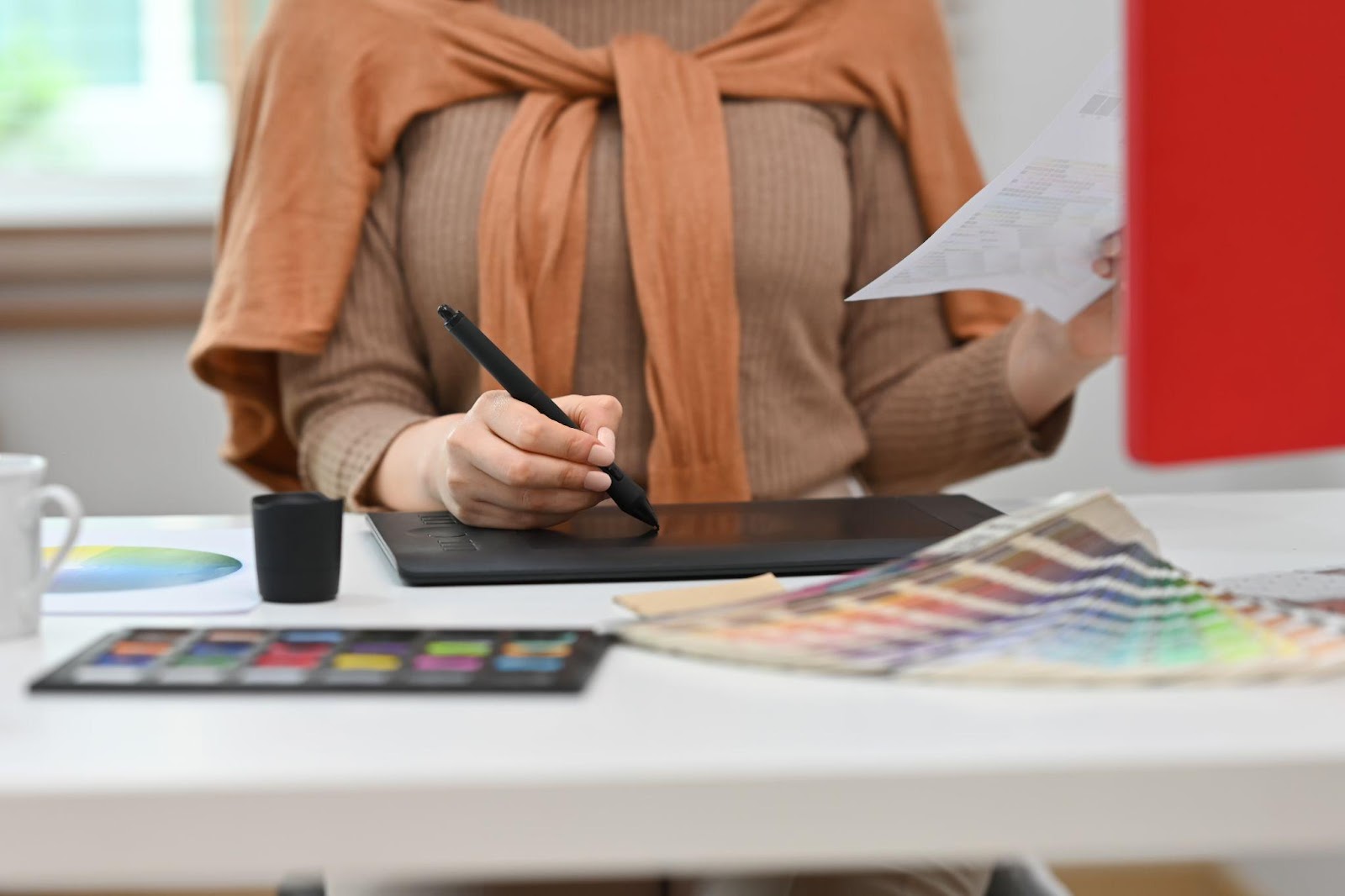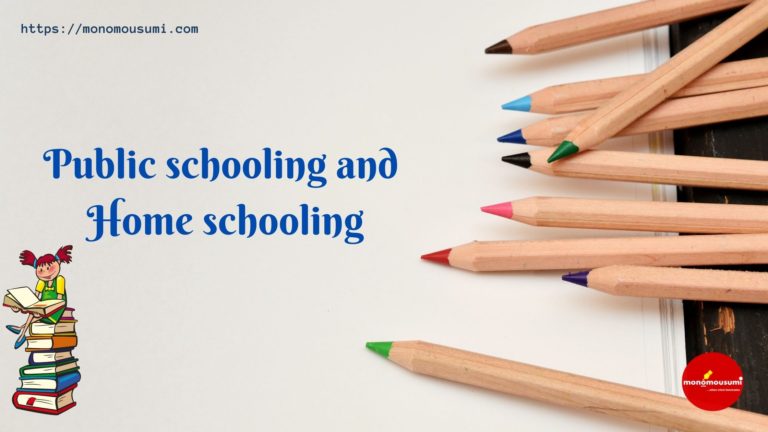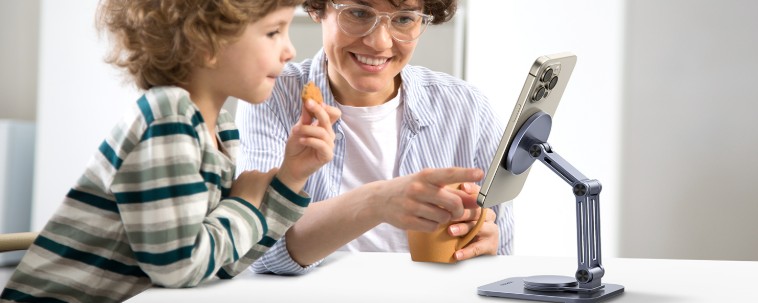
Every year, user and design preferences undergo changes that reflect evolving perceptions of the world. It is essential for creators to continually explore new methods of communication with consumers through visual content, be it digital graphics, fonts, or distinct shapes.
Since 2023 is here, it’s worth taking a closer look at some of the latest trends in graphic design that are gaining momentum and captivating the attention of designers, marketers, and consumers alike. Read on to discover what’s new in the field!
8 current graphic design trends
In general, graphic design in 2023 is projected to evolve toward creating unique, visually striking designs that integrate innovative technologies and techniques. Nevertheless, designers are expected to maintain a strong focus on user experience and functionality.
The emphasis is likely to be on creating designs that are aesthetically pleasing while remaining accessible and user-friendly. Moreover, sustainability and inclusivity are expected to play a more significant role in design choices, with a focus on developing environmentally-friendly designs that are accessible to all individuals.
#1 AI-generated images
The rise of AI-powered solutions, such as Midjourney and DALL-E, has revolutionized graphic design. These tools allow creators to generate numerous images for their work within seconds. The resulting images can be utilized for various applications, including advertising, web design, and even art.
Moreover, AI-generated images can be tailored to meet the specific needs of particular projects. The algorithms can be trained on various types of visual content, which allows them to produce images with a distinct style, color scheme, or composition. This level of customization can prove particularly advantageous for businesses and designers seeking to establish a unique brand identity or visual style. This new trend in design significantly saves creators time, allowing them to get unique materials for their work.
#2 Motion elements
In 2023, you will find a lot of motion elements in websites, mobile applications, social media, and advertising campaigns. These design components deliver dynamic movement and energy to static images, effectively capturing viewer attention and engaging them with the design. They can also help to communicate a message more effectively than static elements, providing a visual representation of a process, concept, or idea.
To create effective motion elements, designers must have a good understanding of animation principles and their application in graphic design. This involves knowledge of timing, movement, pacing, and an understanding of how different design elements can be combined to create a cohesive and visually appealing animation.
For example, you can impress users by incorporating a stunning parallax effect in your next website project. The parallax effect involves animating several elements at varying speeds, creating an illusion of depth and dimension by moving the background of a webpage at a slower pace than the foreground. The effect is achieved through diverse methods such as scrolling, mouse movement, or touchscreen gestures, providing users with a sense of immersion and interactivity.
#3 Abstract and organic shapes
Current graphic design trends emphasize calmness and uniqueness, allowing creators to achieve a special atmosphere in their artwork. Abstract and organic shapes inspired by nature, such as waves, clouds, or rock formations, are increasingly being incorporated into designs.
These shapes are visually captivating and can create a unique and memorable look for a design. They can be used in a variety of ways, such as backgrounds, logos, icons, or decorative elements in typography. This trend is here to stay, as more designers seek to create designs that stand out and capture attention with their distinctive shapes and forms.
#4 Liquid gradients
Liquid gradients have become an emerging trend in graphic design, characterized by their soft, flowing shapes and smooth transitions between colors. They can add a fluid and organic feel to your visual content. The use of rounded shapes and gentle curves adds movement and flow to the design, while subtle variations in color create a sense of depth and dimensionality, resulting in a calm and soothing overall composition.
Liquid gradients are highly versatile and can be applied to various design contexts, from creating striking website backgrounds to adding subtle texture to a brand’s logo. Additionally, they can be customized to fit a wide range of color schemes and brand identities.
By using liquid gradients, you can also create a sense of continuity and consistency across all brand design materials. By incorporating the same colors and shapes into various design elements, brands can establish a cohesive look and feel, reinforcing their brand identity.
#5 Vintage typography
Vintage typography has become increasingly popular in recent years due to its ability to evoke a sense of nostalgia and authenticity in branding and marketing materials. These fonts are inspired by traditional typography of the early 20th century and feature elaborate, ornamental details and bold, eye-catching lettering. They are often used in logos, packaging, and posters to convey a sense of history and quality craftsmanship.
In addition to their aesthetic appeal, vintage fonts have an emotional impact on audiences by evoking feelings of nostalgia and creating a connection with the past. This emotional resonance can help build brand loyalty and make a brand more memorable to consumers.
Some popular vintage typefaces are:
- Bebas Neue—a modern font that takes inspiration from traditional sans-serif fonts of the 1920s and 1930s.
- Rockwell—a slab serif font with a bold, sturdy appearance. Rockwell was first designed in the 1930s and has remained popular in vintage design ever since.
- Baskerville—a serif font that was designed in the mid-18th century, delivering an elegant and classical style.
#6 Flat design
In recent years, there has been a shift in the design industry towards flatness, with many designers embracing the minimalist and functional approach of flat design.
Flat design is based on the concept of eliminating unnecessary design elements, such as shadows, gradients, and textures, in favor of clean lines, bold colors, and simple shapes. It is characterized by a minimalistic, two-dimensional approach, with a focus on simplicity, clarity, and functionality.
Flat design has become popular in web and mobile interface design, as it makes interfaces more intuitive and user-friendly. The use of vibrant, vivid colors and simple shapes helps highlight key elements on the screen, making it easier for users to navigate and interact with the interface. Additionally, flat design can be more visually appealing and memorable than more complex designs, as it is often more distinct and recognizable.
#8 Handmade illustrations
Handmade illustrations provide a distinct and personalized aesthetic that can’t be achieved with stock imagery or graphics. They offer a sense of playfulness and authenticity that can be particularly effective for brands seeking to convey warmth or approachability.
This graphic design trend is characterized by illustrations that are crafted by hand, using traditional methods like pen and paper or digital tools that replicate the look of hand-drawn art. You can use handmade illustrations in various design contexts, such as website design, advertising, and brand packaging.
Where to search for trendy graphics and design elements
When seeking inspiration for new design ideas, it’s important to explore both demand and existing artwork. While search engines can be helpful, they often provide predictable results. Instead, designers can turn to stock content marketplaces such as Depositphotos for more unique and trendy graphics.
Depositphotos is a popular photo stock that features high-quality digital content for creative professionals and businesses around the world. The platform offers a vast file collection of over 250 million royalty-free images, videos, and music available for use in various creative projects. Depositphotos has a user-friendly interface that allows users to search and browse for content based on specific keywords, categories, and themes.
In addition to its extensive library, Depositphotos also offers several AI-powered tools to streamline your creative workflow. For example, Depositphotos Background Remover can quickly erase a photo backdrop, allowing creators to prepare their visuals for integration in collages and other design projects. Follow the link https://depositphotos.com/bgremover.html and upload a JPEG, JPG, PNG, or WebP file with a maximum size of 30 MB. The tool will automatically process the visual, employing its neural network to analyze foreground details and eliminate the backdrop. You can also utilize editing brushes to customize the result. Make sure to create a free account to download your background-free image.
Wrapping up
Staying up-to-date with the latest graphic design trends can help you create designs that resonate with your target audience and give you a competitive edge. Nonetheless, it’s also important to remember that trends come and go, and it’s essential to develop a distinctive design style that reflects your personal brand. By combining your individual style with current trends, you can create visually captivating and unforgettable designs.
Write and Win: Participate in Creative writing Contest & International Essay Contest and win fabulous prizes.


